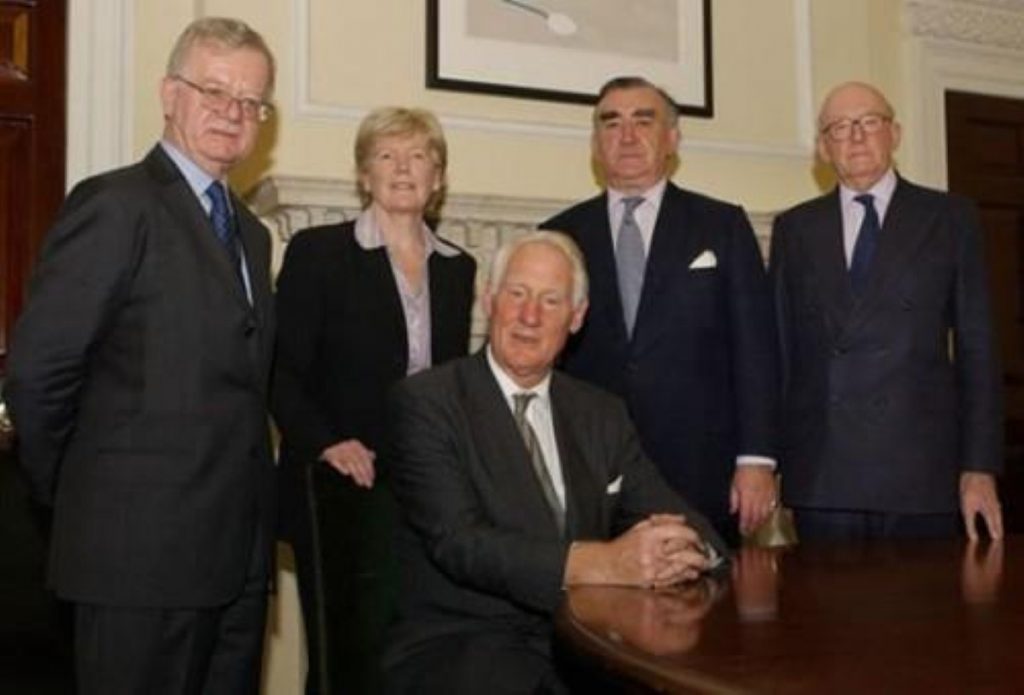Butler: No deliberate attempt to mislead over Iraq WMD intelligence
The Butler Inquiry has cleared the Government of lying to the public over the war in Iraq in its September 2002 dossier on Weapons of Mass Destruction.
Delivering his long-awaited report into the issues surrounding the gathering and usage of intelligence material on Iraq’s presumed possession of Weapons of Mass Destruction (WMDs) Lord Butler said he found no evidence of “deliberate distortion or of culpable negligence”.
Speaking to reporters at the launch of the report, Lord Butler said that the report includes an “unprecedented” amount of intelligence material and said that he believes it gives “a fair view of the issues we were asked to cover.”
Looking at the history of Iraq’s relationship with the UN, Lord Butler noted that Iraq had used WMDs before and the intelligence community was increasingly concerned with the proliferation of WMDs across the globe.


However, Lord Butler concluded that in the drawing up of the September dossier, warnings about the limitations of intelligence were lost, an event he describes as a “serious weakness”.
The Government, Lord Butler says, looked to the dossier to support its movement away from a containment strategy towards Iraq towards a more proactive approach.
However he found no evidence of deliberate distortion of evidence by the Government or intelligence officers.
While the decision to emphasise the ownership of the dossier by the Joint Intelligence Committee (JIC) was undertaken with “commendable motives”, Lord Butler states, it put a strain on the Committee’s neutrality and in retrospect it was a mistake for it to be so closely and publicly associated with its conclusions.
Successive JIC assessments stated that “crucial warnings” about the reliability, or “greyness”, of intelligence were lost when put into the dossier.
Specifically addressing the position of John Scarlett, at the time chair of the JIC and today the head of MI6, Lord Butler said that he recognised there may be calls for him to step down following the criticism of the JIC. Lord Butler said “we greatly hope that he will not do so” adding that the investigation team have high regard for his skills.
It may have been a “mistake for the dossier to be so closely associated with JIC, but collective one for which he should not take whole responsibility.”
Addressing the Government’s motives in drawing up the September dossier, Lord Butler said: “We have no evidence that the Government did not itself believe the judgements that it was placing before the public” and was emphatic in his assessment that there was “No deliberate attempt of the part of the Government to mislead”.
There is “no evidence to question the Prime Minister’s good faith” he added.
On the key media issue of the 45 minute claim, Mr Butler said it was an “uncharacteristically poor piece of assessment” and it should not have been included in the dossier “without stating what it was believed to refer to.”
“The fact that the reference in the classified document was repeated in the dossier later led to suspicions that it had been included because of its eye-catching nature.”
The claim is now regarded as unreliable, the report adds.

